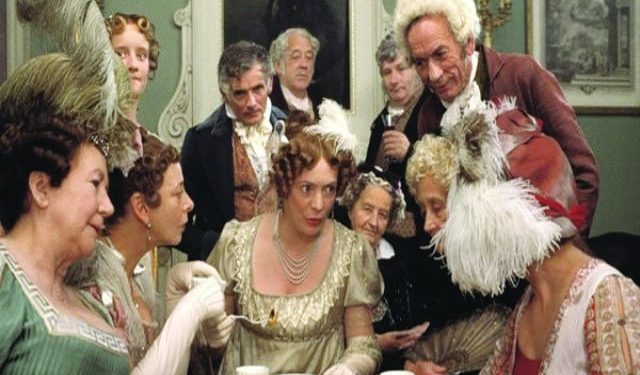250 years after her birth, Austen’s prose still strikes a cultural chord
Sitting at her table with her quill and inkpot spinning out yarns about the horrors of uninvited guests, it is unlikely that Jane Austen, mistress of the OG chick lit, would have devoted any thought to who would still be poring over her work two centuries down the line. Certainly not in a splintered portion of the Indian subcontinent.
And yet here we are. This year marks the 250th anniversary of Austen’s birth. It is an occasion that has not gone unnoticed by Austen fans. As the Daily Mail tells us, this is the year fans will be flocking to Bath, Austen’s hometown, to attend festivals, talks and exhibitions. We Pakistanis may not be amongst them, but we don’t need to make a voyage to Bath. We can appreciate Austen’s lasting prose from our sofas right where we are.
Riffling through the pages of Pride and Prejudice, Austen’s most enduring classic dating back to 1813, you will be greeted with an overbearing mother (Mrs Bennet), a persistent suitor in cahoots with the overbearing mother (Mr Collins), an easily offended opinionated elderly aunt (Lady Catherine de Bourgh), a patronising gentleman in raptures over a woman who can sew (Mr Bingley), large social gatherings where attendance is mandatory (every Austen novel), and rushing to the kitchen to prepare a show-stopping meal for uninvite guests (you may despise their existence but must keep face – see above). Even if you have thus far been repelled by all Regency prose, you will recognise all these people. As a careless peruse through the Pakistani drama catalogue will show you (or a cursory examination of your own life, perhaps), we are still living in the world Austen depicted so beautifully 200 years ago.
Marriage proposals
Of course, an opinionated elderly aunt or overbearing mother can get away with a lot less in twenty-first-century England than she could in Austen’s time. Judging by the population of teenagers in modern secondary schools in the UK, no self-respecting young adult gives a toss about the opinions of an aunt, elderly or otherwise. The powers bestowed to an opinionated elderly aunt – such as Lady Catherine from Pride and Prejudice – have shrunk considerably in this modern world of ours.
However, whilst the Lady Catherines or Mrs Bennets of the world may not be able to wreak as much havoc as they would like in Austen’s hometown of Bath and beyond anymore, they still exert power and influence in the land we Pakistanis call home. As Austen informs us in the opening line of Pride and Prejudice, “It is a truth universally acknowledged that a single man in possession of a good fortune must be in want of a wife. However little known the feelings or views of such a man may be, this truth is so well fixed in the minds of the surrounding families, that he is considered as the rightful property of someone or other of their daughters.”
It is this very universally acknowledged truth and the desperation to seek a hand in marriage on time that led Sharjeena in Kabhi Main Kabhi Tum to turn to Adeel’s loser brother Mustafa to spare her parents any blushes on her intended wedding date. (The invitations had been sent out! We can’t possibly tell any guests the original groom backed out! Let’s put up this untested groom in his place and hope for the best!)
Austen, you see, is more just a source of headache for A-level literature students incapable of appreciating a plot where the most exciting thing that happens is that someone receives a letter, or that someone catches a cold. Those of us who appreciate colds as a plot device are attuned to the dry wit laced through Austen’s prose.
“Had she found Jane in any apparent danger, Mrs Bennet would have been very miserable, as her restoration to health would probably remove her from Netherfield,” writes Austen about Mrs Bennet wishing to engineer her daughter Jane’s proposal. Mrs Bennet’s modus operandi is to throw Jane into the path of Mr Bingley at Netherfield – his large estate – and hope for the best. Is this not how the wheels turn in the mind of a Pakistani mother nursing similar ambitions for her daughter of a marriageable age?
Patronising men
Naturally, it is not just scheming mothers from 200 years ago that we can still relate to. Mr Bingley (whom Mrs Bennet has her heart set on for her eldest daughter) is unable to believe how “accomplished” all the young ladies of his acquaintance are. With a touch of disbelief, he rhapsodises about women thusly: “They paint tables, cover screens and net purses. I scarcely know any who cannot do all this, and I am sure I never heard a young lady spoken of for the first time without being informed that she was very accomplished.”
Mr Bingley’s list of things that enable a lady to be accomplished falls under the same patronising umbrella as Bollywood superstar Shah Rukh Khan’s I-love-women tweet on International Women’s Day back in 2016: “Often I wish I was a woman. Then I realise I don’t have enough guts, talent, sense of sacrifice, selfless love, or beauty to be one. Thank you, girls.”
Overbearing aunts
Revolting backhanded praises aside, the cherry on the top must surely belong to Lady Catherine, who has guessed that her nephew Mr Darcy (whom she had set aside for her own daughter) is planning on proposing to Elizabeth. The elderly Lady Catherine speaks for all Pakistani ladies of a certain age who are content with blaming their misfortunes on a wily young girl. Upon asking a clueless Elizabeth whether or not Mr Darcy has proposed to her, Lady Catherine says, “It ought to be [impossible] while he retains the use of his reason. But your arts and allurements [ ] may have made him forget what he owes to himself and to all his family. You may have drawn him in.”
In her most famous line, Lady Catherine later wails about the shades of Pemberley being thus polluted, with her only source of happiness stemming from hurling every ounce of blame for her nephew’s change of heart on the alluring Elizabeth Bennet – not unlike Pakistani women who reap unwanted blame for the actions of a man. Not that we need examples for this, but if you are searching for one, we can again look to Kabhi Main Kabhi Tum, where Sharjeena was blamed by her mother-in-law for not keeping her new husband Mustafa in line back when he was enjoying his job-free lifestyle.









